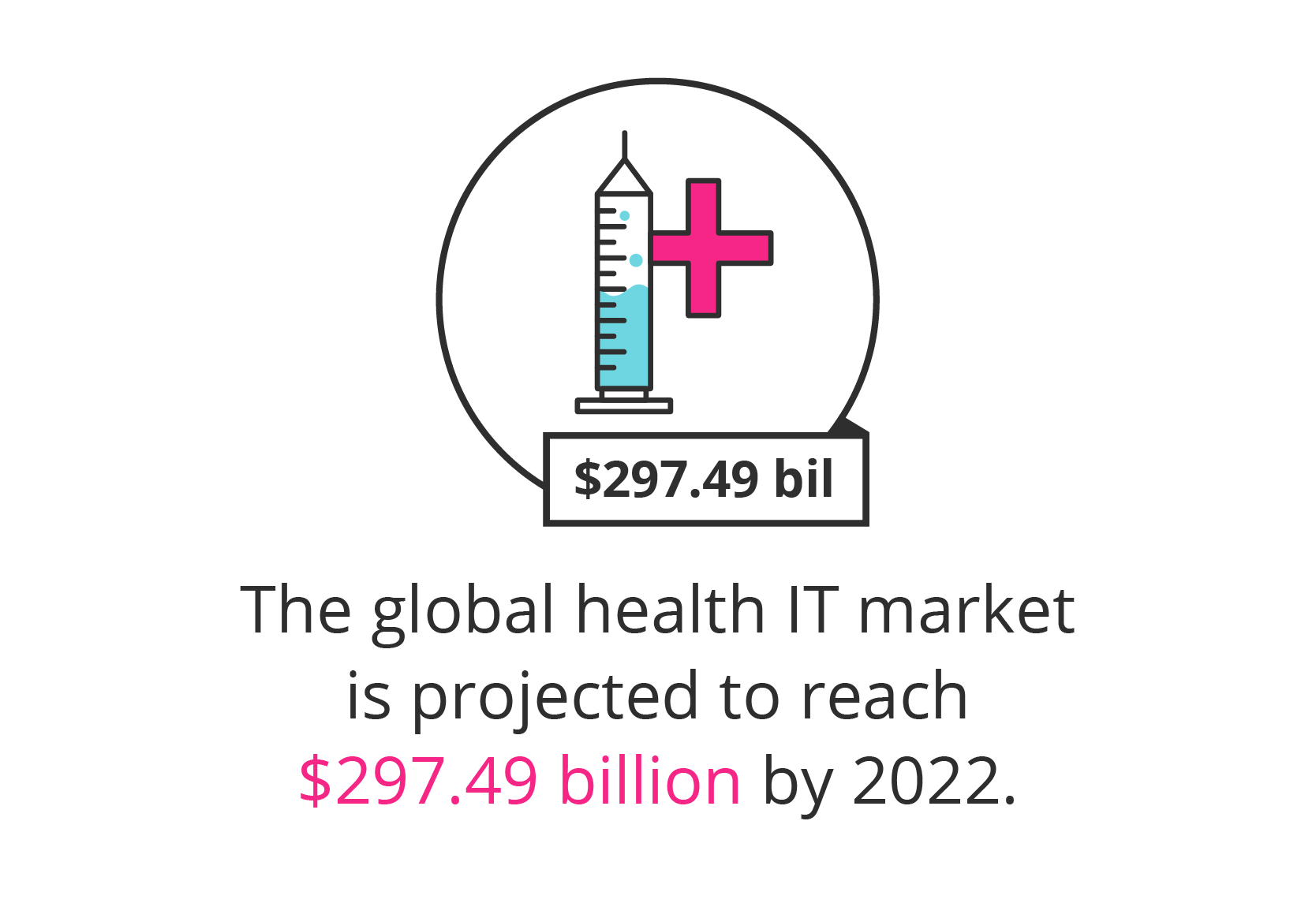Which Jobs Will Be In Demand In The Next 10 Years?
The Fourth Industrial Revolution is changing the work landscape across all industries, worldwide. The World Economic Forum reports that this could see the displacement of 75 million jobs due to the adoption of new technologies and structural changes in the labour market.1 However, it’s not all doom and gloom, as the simultaneous emergence of 133 million new jobs has also been predicted.2 The key is to carve a career path that takes advantage of these technological changes but can’t be replaced by them.
By 2030, roles in office support, food service, production and machine operations, and mechanical installation and repairs will have all but disappeared in the US,3 with similar trends happening in South Africa and the rest of the world. The jobs that will continue to be in demand include health professionals, STEM (science, technology, engineering and mathematics) specialists, creatives, managers, and those in education or workforce training.4
You can also expect a rise in jobs that don’t exist yet to meet new or growing needs, such as climate change and environmental issues, or to cater to the longer life expectancy of the global population. Imagine a career change to become a solar power or wind turbine specialist,5 or reinventing yourself as an urban farmer.6 Those are recognisable professions with a niche twist, but there are predictions that future roles such as AI psychologist, drone manager, or a quantum data analyst will also exist.7 There should also be significant growth in health and wellness professionals that can assist in taking care of an aging population, keeping everyone fit and healthy, and offering the special care and bedside manners missing from machines and robots.8
Are you building in-demand skills for the jobs of the future?
While it’s impossible to predict the future course of each and every job in the workplace, there are certain capabilities that can help safeguard your future career if not your current role. Tech and finance skills will still be in high demand,9 but there’ll also be a need for soft skills that cannot be automated. These include emotional intelligence for communication and conflict resolution; critical thinking, problem-solving and innovation; and even basic social skills, such as friendliness and the ability to make small talk.10
Before you start to map out your 10-year career goals, it helps to understand these workplace changes and what forces will have the biggest impact on organisations. Then you can adapt that plan to get yourself job-ready.
Five fundamental forces affecting the professional landscape of the future:11
1. Organisational rearrangement will change job demand
Organisations will become more flexible and transparent, with a focus on project-based relationships and business sustainability. Leadership will become more horizontal and shared as increased social and external collaborations break down the traditional hierarchical model.
Important job roles:
Will you move up into management?
With Business Insider listing “general and operations managers” as the third highest-paid professionals in the future,12 it’s a good idea to build a skill set now that could put you ahead of the game in the management industry.
Currently, the second-most difficult positions for South African businesses to fill are management and executive roles – a trend that’s predicted to continue for the next 10 years.13 Which means you could be the working professional who fills that gap – whether that’s optimising and refining business processes through an integrated improvement methodology, navigating the project-based approach of future organisational structures, or offering operational expertise.

2. An increasingly global and diverse talent pool will shape job creation
The workforce will become increasingly multigenerational and diverse, while the workspace will become more flexible and agile. There will be a need to modify policies, salaries, benefits, and office layouts to accommodate the needs of the new professional.
Important job roles:
- HR manager
- Talent manager
- Facilities manager
Are you the talent management professional of the future?
A growing multigenerational workforce requires a more flexible and adaptable approach to manage and retain talent.14 Each generation will have their own motivations and ways of working, but you can’t rely on stereotypes to encourage productivity or inspire loyalty.
If you start to develop a strong portfolio of skills now, you could become a key facilitator in retaining and engaging the diverse workforce of the future, while also managing and implementing changes within the workplace.
3. A connected world will change the way you work
As virtual devices enable workplace interactions and communication to happen anywhere, at any time, job roles and careers become increasingly redefined to fit into these boundaryless models.
Important job roles:
Is cloud computing the career for you?
Leaders within the IT industry believe that the ongoing growth of cloud-based services will create a myriad of job opportunities in the future, with the majority of companies using some form of cloud computing. In fact, demand has risen 108 per cent in recent years.15 As more and more businesses implement cloud servers, there will also be a need for cybersecurity measures to be put in place to manage risk.
This means there are a number of opportunities for you to branch into this industry – developing the skills you need to create an interconnected workspace, getting the expertise to develop and manage cloud computing software, or learning how to protect your future company from inevitable cyber threats.
4. Adapt to rapid technological change
Artificial intelligence (AI), robots, autonomous vehicles, and the Internet of Things is reshaping the world of work. Today’s ecosystem demands a workforce who can handle uncertainty, adapt to frequent changes, engage with automation and develop their knowledge when certain skills become obsolete.
Deloitte reports that smart professionals and business leaders will be looking for ways that technological advances can deliver business value and competitive advantage.16
Important job roles:
- Marketing analytics manager
- Data analyst
- Data Scientist
- Fintech entrepreneur
- AI specialist
- IT professional
- Healthcare practitioner
Do you want to take your tech skills into healthcare?
According to a recent report by MarketsandMarkets, the global health IT market is projected to reach $297.49 billion by 2022.17 This growth is due to the increased need to improve the quality of healthcare, while ensuring operational and technological efficiency within the industry’s entities.

Naturally, this growth has and will continue to create a demand for staff and faculty who have experience and knowledge within this field. It means you have an opportunity to start developing your tech skills in order to have a significant impact on the healthcare industry of the future.
5. How collaboration between humans and robots will change the professional environment
As big data, analytics, and AI take over work that was previously performed by humans, new job roles will start to open up. These will be focused on skills such as monitoring, creating, operating, or designing automated and online processes.
Important job roles:
Could you be the next online course developer?
The e-learning industry is set to reach a global market share of $300 billion by 2025,18 largely driven by advances in technology, evolving business needs, and a number of emerging learning and development trends.
The ability to implement and develop online courses and programmes, or utilise online learning techniques for corporate training, is going to make you an invaluable asset to the workforce in the years to come.
Lifelong learning is key to career development
Take action: Education and an attitude of lifelong learning is going to become more crucial than ever. The World Economic Forum has identified education as the number one way to prepare for the next two decades of work. By constantly learning new skills, updating your current abilities, or experimenting in different industries, you’ll be as prepared as possible to adapt your career to meet the job roles of the future.
FIND THE COURSE TO DEVELOP THE SKILLS YOU NEED
- 1 (2018). ‘Workforce trends and strategies for the fourth industrial revolution’. Retrieved from World Economic Forum.
- 2 (2018). ‘Workforce trends and strategies for the fourth industrial revolution’. Retrieved from World Economic Forum.
- 3 (Jul, 2019). ‘The future of work in America: People and places, today and tomorrow’. Retrieved from McKinsey.
- 4 (Jul, 2019). ‘The future of work in America: People and places, today and tomorrow’. Retrieved from McKinsey.
- 5 Liu, J. (Sep, 2019). ‘The 10 fastest-growing jobs of the next decade – and what they pay’. Retrieved from CNBC.
- 6 Dormehl, L. (Sep, 2019). ‘Tomorrow’s jobs: 7 future roles that will exist in the age of automation’. Retrieved from Digital Trends.
- 7 Morris, N. (Apr, 2019). ‘The 10 surprising jobs that will be huge in 2050’. Retrieved from Metro.
- 8 (Jul, 2019). ‘The future of work in America: People and places, today and tomorrow’. Retrieved from McKinsey.
- 9 Murray, S. (Jun, 2019). ‘Graduates with tech and finance skills in high demand’. Retrieved from Financial Times.
- 10 Jenkins, R. (Jul, 2019). ‘This is the most in-demand skill of the future’. Retrieved from Inc.
- 11 Boudreau, J. (Sep, 2019). ‘Work in the future will fall into these 4 categories’. Retrieved from Harvard Business Review Ascend.
- 12 Kiersz, A. (Mar, 2019). ‘The 30 best high-paying jobs of the future’. Retrieved from Business Insider.
- 13 (Nov, 2018). ‘These 10 jobs are the hardest to fill in South Africa’. Retrieved from BusinessTech.
- 14 Prossack, A. (May, 2019). ‘4 Must Know Tips For Successfully Managing a Multi-Generational Workforce’. Retrieved from Forbes. (May, 2019).
- 15 DeNisco Rayome, A. (Dec, 2018). ‘15 most in-demand cloud computing jobs’. Retrieved from Tech Republic.
- 16 Briggs, B. et al. (Jun, 2019). ‘The future of work in technology’. Retrieved from Deloitte.
- 17 (Jun, 2019). ‘Global Healthcare Information Technology (IT) Market to Reach $297.49 Billion by 2022, Says Allied Market Research’. Retrieved from Globe NewsWire. (Jun, 2019).
- 18 Bhardwaj, P. & Bhutani, A. (Feb, 2019). ‘E-learning market size by technology (online e-learning, learning management system (LMS), mobile e-learning, rapid e-learning, virtual classroom), by provider (service, content), by application (academic [k-12, higher education, vocational training], corporate [smbs, large enterprises], government), industry analysis report, regional outlook (U.S., Canada, UK, Germany, France, Italy, Spain, Russia, China, India, Japan, South Korea, Singapore, Australia, Brazil, Mexico, Argentina, Chile, Colombia, GCC, South Africa), growth potential, competitive market share & forecast, 2019 – 2025. Retrieved from Global Market Insights.
- 19 Kasriel, S. (Jan, 2019). ‘What the next 20 years will mean for jobs – and how to prepare’. Retrieved from World Economic Forum.